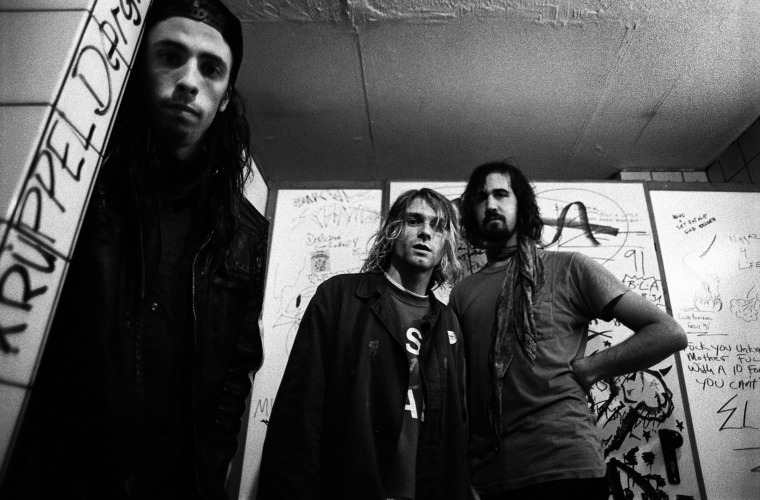An appeals court ruling this week has revived a lawsuit that accuses the band Nirvana of profiting off of child sexual abuse imagery with their “Nevermind” album cover, after a lower court threw out the complaint last year.
First filed in August 2021 by Spencer Elden, the man featured on the 1991 cover as a baby, the lawsuit alleges that the defendants profited from his image and that he suffered “permanent harm,” including emotional distress. The defendants include the surviving members of Nirvana, Dave Grohl and Krist Novoselic, as well as Courtney Love, Universal Music Group and photographer Kirk Weddle.
“Nevermind” is one of the bestselling albums in the world, and its cover is one of the most recognizable. It features Elden as a 4-month-old, swimming naked in a pool toward a dollar bill attached to a fishing hook.
Last year, a U.S. district judge ruled against Elden, saying the 10-year statute of limitations had passed. But the 9th U.S. Circuit Court of Appeals in California reversed that decision on Thursday, writing that Elden’s complaint noted the image has been reproduced and redistributed within the statute of limitations, citing a September 2021 re-release of “Nevermind.”
“We hold that, because each republication of child pornography may constitute a new personal injury, Elden’s complaint alleging republication of the album cover within the ten years preceding his action is not barred by the statute of limitations,” the judges wrote, sending the case back to the lower court.
Elden has re-created the image in the past, posing for photos (while clothed) to commemorate the album’s various anniversaries. But he told The New York Times that he began to have a change of heart in early 2021, when he asked Nirvana to be part of his art show and was instead referred to managers and lawyers.
“Why am I still on their cover if I’m not that big of a deal?” he told the Times. His lawyer, Maggie Mabie, added that he’d been uncomfortable with the image for a long time.
Nirvana’s attorney Bert Deixler told The Associated Press that the appeals court ruling was a “procedural setback,” and that they would “defend this meritless case.”

